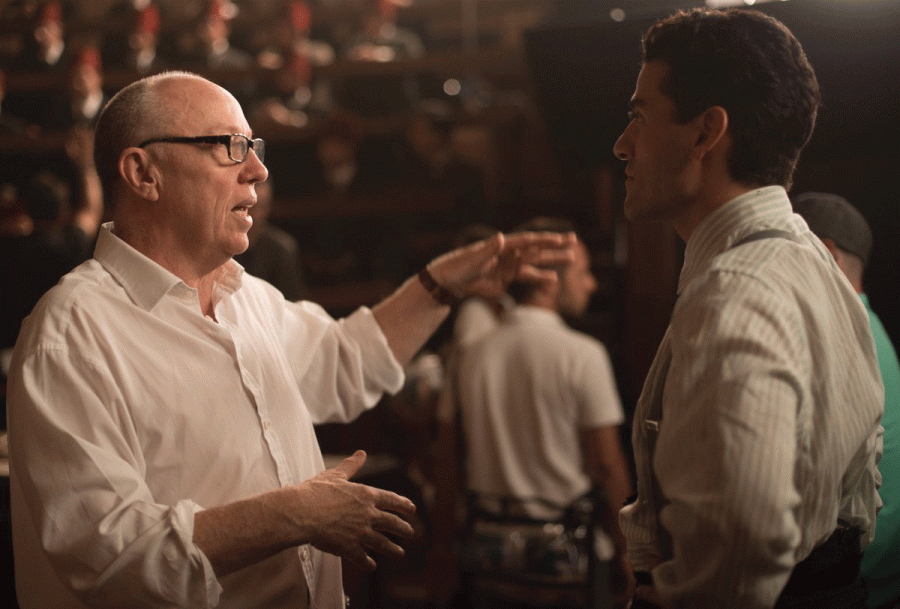Terry George Gives Voice to Marginalized Armenians
“The Promise, “ the first Hollywood film about the Armenian Genocide, premiered at Colgate on March 27.
The security guards outside of the Hamilton Theater on Monday, March 27 emphasized that what students, faculty and community members were about to walk into was a pretty big deal. The theater was packed and buzzing with anticipation about the premiere of “The Promise,” the first Hollywood film about the Armenian Genocide, which still is not even recognized by the Turkish government.
The director of the film, Terry George, was at the event, and his introduction alone was one that could impress even those who are not cinematically inclined. Terry briefly attended Queens University Belfast; however, his noteworthy accomplishments have more to do with his films and political involvement than his education alone. George has earned several Academy Awards and Oscar nominations for his films, including “In the Name of the Father” and “Hotel Rwanda.”
Before his fame from his cinematic accomplishments, George was sentenced to six years in prison for his involvement with the Irish Republican Socialist Party, yet was released three years early for good behavior. “Good behavior meant you didn’t burn down the prison,” George said after being introduced to the audience by Professor Balakian.
George gave a brief introduction to his film by providing a short history of the Armenian Genocide. He talked about the fact that MGM studios wanted to make a film about this horrific period in history, yet the project was terminated by the Turkish government, emphasizing the weight this film will carry when it is finally released in theaters on April 21.
George also spoke about the location of the film. Though the actual genocide took place in Armenia, the film was shot in parts of Spain and Portugal.
“When you shoot a film in the place where the real events took place, a weird distortion happens,” George said.
Not to give too much away about the film, but it was definitely one that evoked every emotion, from rage to sorrow and at some points, joy and a sense of hope. It exposed the harsh realities of an event that was very real to an entire group of people, yet was ignored and left unacknowledged by a large portion of the world.
After the film concluded, George stood at the front of the theater to talk about what everyone had just watched. He explained that, though the characters and events were fictional in the film, these events undoubtedly happened to real people from 1915 to 1917 in the Ottoman Empire. He emphasized how important it was that he portrayed these events “right” and truly captured the pain that Armenians felt and continue to feel today.
When discussing the challenges of making this film, George spoke to the economics of the film industry and how that presents obstacles for films such as “The Promise.” He ultimately believes that his films leave people with a kind of empathy that more mainstream movies do not necessarily provide.
“You leave the theater in a way that you’ll remember,” George said.
George also spoke about what role he thinks film plays in educating us about history, and the value it has in teaching us about things we have never had to experience.
“It puts it in a medium that is probably the most powerful medium in educating people,” Goerge said. “And also, it universalizes the story. It’s important to humanize the characters within it and then allow the audience that comes to your film to really absorb themselves in what’s going on.”
“The Promise” will be released in theaters on April 21 of this year. As a film about an event that we may not all know that much about, I highly recommend seeing this, if only to educate yourself and allow the film to give a voice to so many who were previously silenced.






